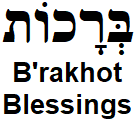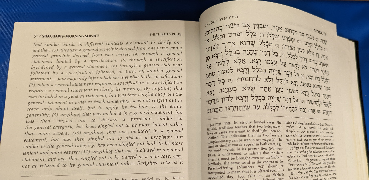This page does not contain the name of the Divine (though it certainly references Him), so you can print it if you like.
If you do not have experience reading transliteration
please see the Guide to Transliteration.
The longing for peace is central to the Jewish mindset, and is the source of this ancient prayer longing for peace. This prayer is incredibly common in the Jewish liturgy, appearing at the end of the Kaddish prayer (not just the mourner's form but all forms marking breaks between sections of the liturgy), commonly sung while waiting for others to finish the Amidah (the central prayer of every religious service) and at other times. It is often sung to joyous melodies, a joyful hope for peace. I remember learning a fun, boisterous melody for this song when I was in Hebrew school in the 1970s, and I remember it being loudly sung in the hallways at my public high school (where half of the students happened to be Jewish).
I commonly hear that first word "oseh" pronounced very much like "oh say" (the first words of the American National Anthem), though that's not really correct and I'm not sure how widespread that pronunciation is. I confess, I tend to do it myself (sheepish grin).
I have noticed in recent years that some people like to replace the line "v'al kol Yisra'eil" (and upon all Israel) with "v'al kol yoshvei tevel" (and upon all the inhabitants of the world) or to add that line after "v'al kol Yisra'eil". That is not my practice, and it bothers me a bit that praying for peace for my people, my family, as we have prayed for thousands of years, is not good enough. That variation does not appear below.
 Common Prayers and Blessings
Common Prayers and Blessings Prayers and Blessings
Prayers and Blessings Jewish Liturgy
Jewish Liturgy